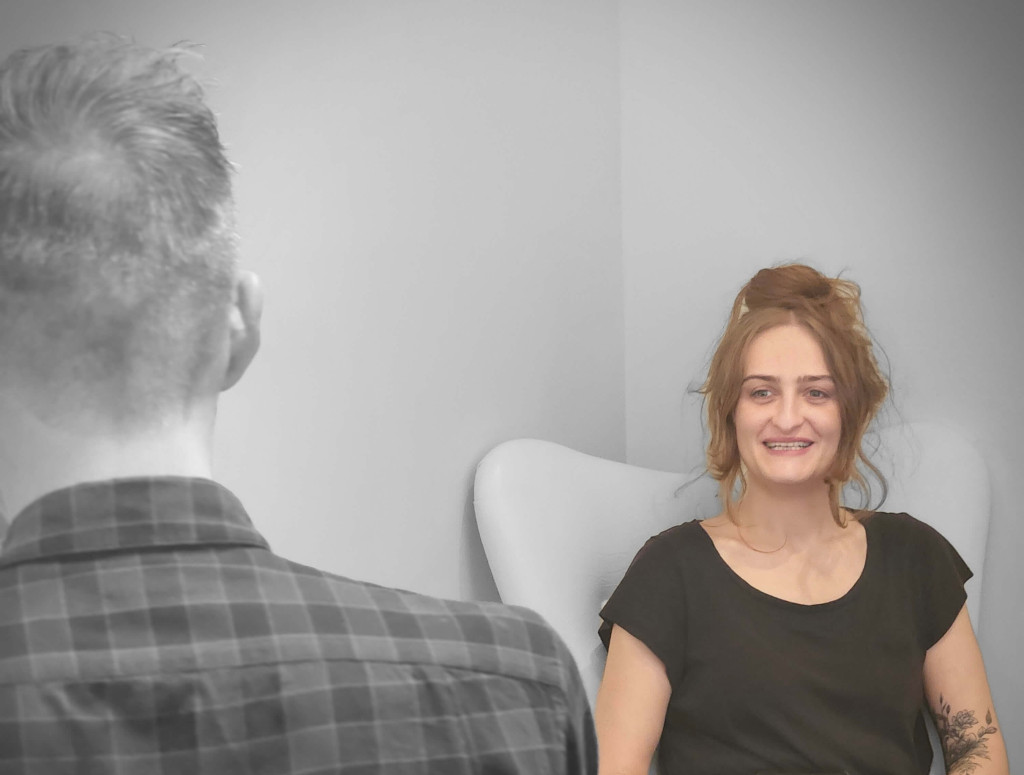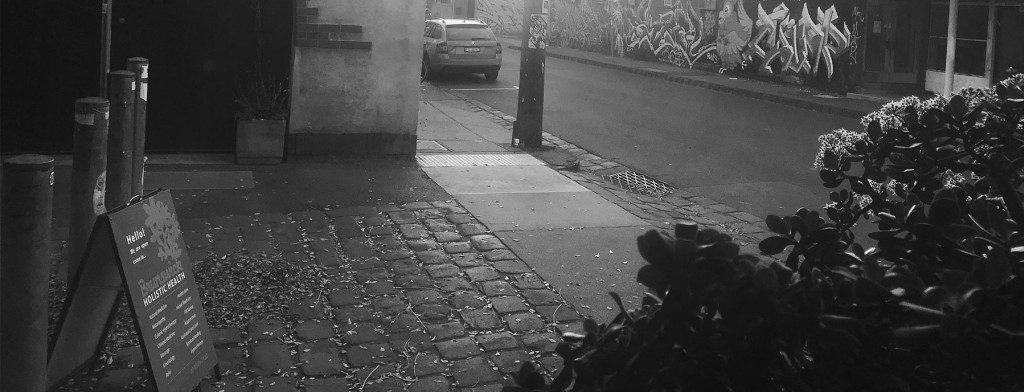{ Does Hypnotherapy Work for Anxiety? }

Anxiety is a prevalent mental health condition, affecting up to one in four Australians at some point in their lives. Currently, nearly half of all young Australians report experiencing anxiety. Despite various approaches like medication, talk therapy, exercise, and dietary changes, many continue to struggle. This is often because anxiety originates in the subconscious parts of the brain, areas that don't respond effectively to rational thought alone. To achieve lasting change, we need to address these deeper layers of the mind.
This is where hypnotherapy can make a significant difference. Hypnotherapy works directly with the subconscious and is recognised as a highly effective tool for resolving anxiety. This article aims to clarify how it works, starting with understanding your subconscious mind.
Your Subconscious Has One Primary Job: Keep You Alive
From birth, your subconscious mind's mission has been to protect you and ensure your survival. It manages vital reflexes and continuously collects behaviours, beliefs, values, and skills to help you navigate the world. While usually an excellent guardian, anxiety can signal that something is amiss, urging our attention. However, like any guardian, it can sometimes misinterpret situations or overextend its role. Therefore, learning to understand and appropriately respond to the subconscious's signals is crucial, particularly by distinguishing between real and imagined fears.
Real Fears
Real fear arises from immediate and genuine threats, such as a physical attack, a break-in, financial ruin, or encountering a dangerous individual. In these situations, anxiety is your subconscious mind functioning exactly as it should, alerting you to danger to keep you safe.
However, not all anxiety stems from clear threats. Sometimes, the subconscious becomes overwhelmed, stretched beyond its available resources. The feeling of anxiety remains the same, but its meaning differs. Your subconscious relies on a limited set of resources—knowledge, skills, beliefs, boundaries, and habits—developed throughout your life to keep you safe. If faced with a challenge beyond these resources, it interprets this as a survival threat, triggering anxiety with the message: "I don't know how to handle this. We need to retreat, regroup, and build new resources."
For example:
· People-pleasing or overcommitment at work - may indicate a lack of proper boundaries.
· Anxiety when facing new tasks - could signal limiting belief systems like "failure is bad" or "I'm not good enough."
· Recurring conflict in relationships - might suggest a need for greater awareness or improved communication skills.
The goal is not to eliminate anxiety, but to carefully listen to its message. Anxiety points to a gap—a missing resource. When you fill that gap—whether it's boundaries, skills, confidence, or new beliefs—the anxiety naturally subsides. Hypnotherapy offers one of the most direct ways to achieve this.
Imagined Fears
With imagined fears, your subconscious mind perceives danger where none truly exists. This can include public speaking, flying, encountering a spider, or receiving negative feedback. While these situations may feel threatening, they do not genuinely endanger your survival.
Your subconscious constructs its understanding of the world through experience, learning by association. These associations can often be "sloppy" or inaccurate. For instance:
· An attack by a dog at age seven - could lead your subconscious to conclude: "All dogs are dangerous."
· Stuttering during a class presentation and being laughed at - might result in the conclusion: "Public speaking is dangerous," or even "socializing is dangerous."
· Growing up with an abusive parent - could lead to the belief: "Being heard or seen is dangerous."
The subconscious prioritizes safety over accuracy, making sweeping associations. In a primal sense, assuming danger (e.g., a rustle in the bushes is a predator) could be the difference between life and death. Thus, to the subconscious, it’s better to be safe than sorry.
While past dangers might have been real (e.g., speaking up to an abusive parent was genuinely unsafe), often what was true then is no longer true now, and the association becomes outdated.
The objective, therefore, is to refine and update these subconscious associations so that your anxiety aligns with current reality rather than overreacting. For example, instead of "all dogs are dangerous," a more accurate association could be: "some dogs—like my neighbours’—may be dangerous, especially if provoked, as I learned when I pulled its tail as a kid." More accurate associations lead to fears that are proportionate to real, present-day risks, allowing you to enjoy meaningful relationships and experiences. Sloppier associations, conversely, create unnecessary anxiety that can limit your life and joy.
How Hypnotherapy Can Help
Anxiety is challenging to shift because it originates in the subconscious, where everything operates automatically, like background computer programs. This is why you don't consciously decide to feel anxious in a crowd or flinch at a spider—it "just happens." These automatic processes are quicker and more powerful than the conscious mind, making rationalizing or talking about them often ineffective for lasting relief.
Hypnosis induces a unique brain state where the subconscious mind becomes more receptive to change. By combining deep relaxation with focused attention, the brain shifts into slower wave patterns, like those experienced during dreaming or light sleep. In these states, the subconscious takes the lead, processing emotions, storing memories, rehearsing skills, and integrating experiences.
Hypnosis is not the same as sleep, but it shares the quality of slowing brain waves. The key difference is that in hypnosis, you remain aware and engaged, allowing direct interaction with the subconscious to guide its processing constructively. Many mistakenly believe hypnosis involves losing control, but it is, in fact, about gaining control over your subconscious mind.
In this state, powerful shifts can occur:
· The brain's fear centres, including the amygdala and overly reactive parts of the limbic system, can quieten. This makes the brain more receptive to forming new perspectives, healthier associations, and adopting positive suggestions.
· Through guided suggestion and role-play, we can strengthen boundaries, build self-worth, update outdated belief systems, and rehearse new skills.
· Because anxiety often stems from triggers mistakenly linked to danger, hypnosis allows us to enter calm, confident, and resourceful states and then anchor these new states to the original trigger.
· Old memories can be revisited with a fresh perspective, allowing you to notice overlooked details, see the wider context, and release outdated belief systems and emotional imprints that no longer serve you.
You’re Not Broken — Your Subconscious Just Needs an Update
Your subconscious is not trying to sabotage your life, and you are not broken. Anxiety is not a life sentence. It is simply your subconscious doing its best to protect you, sometimes a little too forcefully.
What it truly needs is an upgrade: new resources, stronger boundaries, healthier beliefs, and the ability to differentiate between real and imagined threats.
This is precisely the work we do in hypnotherapy: equipping your subconscious with the tools it needs to protect you appropriately, so you can feel safe, capable, and free again.
"Life changing experience for me. We worked on lots of issues like childhood traumas, limiting beliefs, self-esteem, anxiety. Lucas is great to deal with and very professional. I recommend his services to anyone!!"
— Former client, Vicky, Melbourne
Ready to Update Your Subconscious?
You don't have to keep avoiding it.
You don't have to fight through it.
Anxiety isn’t a life sentence—change is possible.
You can feel calm, confident, and capable—without forcing it.
If you're ready to make a change, I'd love to help.

{ Our therapies }
{ Find us }
(corner Ballarat Street)
Brunswick VIC 3056
Our herbal dispensary and over the counter naturopathic advice and product sales are available:
Saturday: 9am - 3pm
Monday: 10am -1pm
Friday: 1pm - 4pm
All other therapies are by appointment. Please book online, email us, or phone 03 9388 2422.
